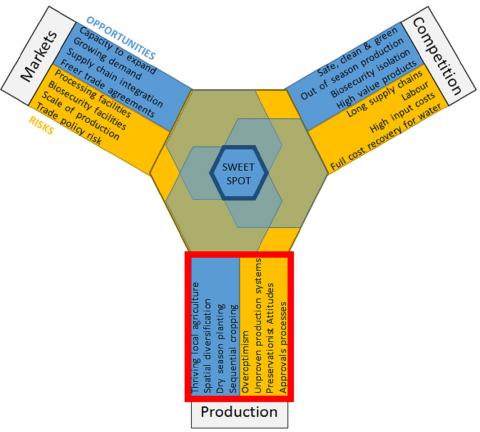
Picking winners is hard for governments and Research Development and Extension (RD&E) organizations. Well targeted RD&E can safely contain the risks and costs of failing, learning and refining at a small scale.
The sparsity of farmland in Northern Australia is testament to the historical challenge in establishing new intensive agricultural businesses and industries in this region. Successful investments in Northern Australia have been sporadic and failures can be costly. Even businesses that ultimately survive and prosper can be unprofitable for the initial investor to establish.
Many of the challenges of farming in Northern Australia require novel and unproven approaches, even when adapting established farming systems and practices from southern locations (where conditions such as daily radiation, evaporation and temperatures are generally more favourable for crop growth during peak growing months). Targeted RD&E can assist in reducing some of the high risk of failure and containing costs at the small scale while solutions to the challenges of farming in tropical locations are tested and refined. A fitting example of this approach is the widespread establishment of agriculture in the tropical savannas of the Brazilian Cerrado region, which included overcoming soil constraints and developing new crop varieties and farming systems for the region (addressing genetics, environment and management together).




